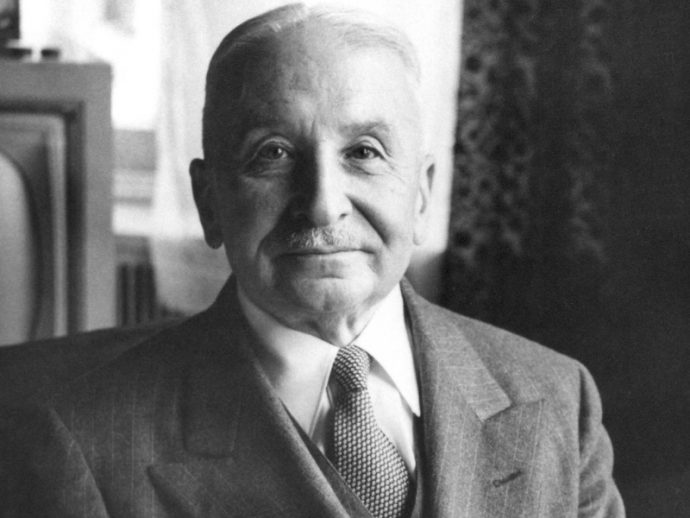Capitalism Magazine has just run another multi-part series which was, as last time, “serialized from Economic Policy: Thoughts for Today and Tomorrow, a book based on six lectures delivered in Buenos Aires in 1959 on Capitalism, Socialism, Interventionism, Inflation, Foreign Investment, and Politics and Ideas by the great 20th century economist” Ludwig von Mises (1881-1973). Here are the links and an excerpt from each of the four parts:
Socialism: Freedom vs. Slavery (1 of 4)
This is the difference between slavery and freedom. The slave must do what his superior orders him to do, but the free citizen — and this is what freedom means — is in a position to choose his own way of life. Certainly this capitalistic system can be abused, and is abused, by some people. It is certainly possible to do things which ought not to be done. But if these things are approved by a majority of the people, a disapproving person always has a way to attempt to change the minds of his fellow citizens. He can try to persuade them, to convince them, but he may not try to force them by the use of power, of governmental police power.
Read more: Capitalism Magazine
Socialism: Class Warfare vs. Harmony of Interests (2 of 4)
In the market economy, everyone serves his fellow citizens by serving himself. This is what the liberal authors of the eighteenth century had in mind when they spoke of the harmony of the rightly understood interests of all groups and of all individuals of the population. And it was this doctrine of the harmony of interests which the socialists opposed. They spoke of an “irreconcilable conflict of interests” between various groups.
Read more: Capitalism Magazine
Socialism: Central Planning vs The Freedom to Plan (3 of 4)
The socialist system, however, forbids [the] fundamental freedom to choose one’s own career. Under socialist conditions, there is only one economic authority, and it has the right to determine all matters concerning production.
Read more: Capitalism Magazine
Socialism: Inability of Economic Calculation (4 of 4)
The problem with which I am dealing here is the fundamental issue of capitalistic economic calculation as opposed to socialism. The fact is that economic calculation, and therefore all technological planning, is possible only if there are money prices, not only for consumer goods but also for the factors of production. This means there has to be a market for raw materials, for all half-finished goods, for all tools and machines, and for all kinds of human labor and human services.
Read more: Capitalism Magazine
Image: Ludwig Von Mises.

